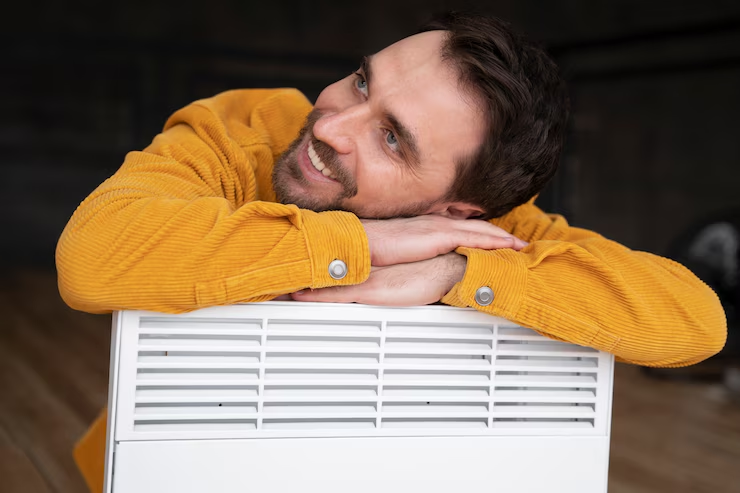The sweltering heat of summer can make any home uncomfortable. In these hotter months, finding ways to keep your home cool is not just a luxury, but often a necessity for comfort and health. Among the various options for home cooling, one system that has been gaining attention for its efficiency, cost-effectiveness, and environmental benefits is the evaporative cooling system. This article explores the numerous advantages of opting for an evaporative cooling system for your home.
Understanding Evaporative Cooling
Evaporative cooling operates on a simple, natural process – using the evaporation of water to cool the air. As hot, dry air passes through water-soaked pads in the unit, the air’s temperature drops, providing a refreshing and cool breeze to the environment. This principle, not relying on refrigerants, makes the system eco-friendly and highly effective in the right climates.
Cost-Efficiency of Evaporative Cooling
One of the most appealing aspects of an evaporative cooling system is its cost-effectiveness. Generally, these systems are less expensive to install compared to traditional air conditioning systems. Moreover, they consume considerably less electricity, significantly reducing household energy bills. The savings gained from opting for evaporative cooling can be substantial, especially in areas with high temperatures and low humidity, where the system operates at its best.
Environmental Benefits
The environmental impact of cooling systems is a growing concern. Many traditional air conditioners use refrigerants that can be harmful to the environment. In contrast, evaporative coolers use a natural process that doesn’t involve any chemical refrigerants, reducing one’s carbon footprint. Furthermore, they have less of an impact on ozone depletion and global warming potential compared to conventional cooling methods.
Enhanced Air Quality
Evaporative cooling systems can improve indoor air quality by continuously circulating fresh air into the home. Unlike air conditioners that recirculate the same air, evaporative coolers pull in fresh air from outside, filter it through water-saturated pads, and then release it into the indoor environment. This ensures that the air in your home is not just cool but also cleaner and fresher. This can be particularly beneficial for people suffering from allergies or respiratory conditions.
Low Maintenance Requirements
Another advantage of evaporative coolers is their low maintenance needs. Typically, they are designed with simplicity in mind, meaning there are fewer parts that could break down or require maintenance. Occasional cleaning of the pads and checking the water levels are generally all that is needed to keep the system running smoothly. This ease of maintenance supports longevity and consistent performance without the need for frequent, costly repairs.
Humidity Control and Comfort
In dry climates, where air can often feel too parched, an evaporative cooler adds moisture to the air, which can make it more comfortable. This added humidity can reduce the dryness of the skin, throat, and eyes. Moreover, because the cooler continually brings in and filters new air, it creates a pleasant breeze that can make the indoor temperature feel lower than it actually is.
Energy-Saving Features
The energy-saving potential of evaporative coolers is significant. They consume up to 75% less energy than traditional air conditioners. This high energy efficiency makes them an excellent choice for environmentally conscious homeowners looking to keep energy costs down. In addition, since the system employs water as the primary cooling medium, there is no need for energy-intensive compression and refrigeration processes, further enhancing energy savings.
Installation Flexibility
Evaporative coolers can be installed in a variety of locations within a home. They can be mounted on roofs, on the ground, or through a window, providing flexibility according to the specific layout and space of your house. This kind of versatility ensures that homeowners can choose the most practical location for their cooler, optimizing cooling effectiveness and convenience.
Quiet Operation
Noise levels are a factor in considering cooling systems. Evaporative coolers are generally quieter than conventional air conditioners, which makes them a standout choice for those looking to maintain a peaceful home environment. Reduced noise levels are especially beneficial during night-time hours when quieter operations are essential for a good night’s sleep.
Zonal Cooling Capabilities
With an evaporative cooling system, it is possible to achieve zonal cooling, where you cool specific areas of your home as needed. This can be an efficient way to manage your cooling needs and energy consumption, as opposed to cooling the entire house, including unoccupied spaces.
Favourable Operating Conditions
While evaporative coolers are well-suited to warmer, drier climates, technological advancements have improved their effectiveness in a broader range of conditions. As a result, many homeowners in varied locales now consider them a viable, economical solution for their cooling needs.
Final Thoughts on Evaporative Cooling
Weighing the advantages – from cost savings and environmental benefits to improved air quality and quiet operation – an evaporative cooling system is a compelling choice for many homeowners looking to beat the heat. By selecting a system that aligns with your home’s local climate and your personal cooling requirements, you can enjoy a comfortable and sustainable living space throughout the warmer months.
In conclusion, for homeowners aiming to make an informed decision about their summer cooling needs, an evaporative cooling system offers a multitude of benefits that are hard to overlook. The combination of cost savings, eco-friendliness, and overall efficiency makes it an attractive solution for those looking to stay cool while minimising their environmental impact.
Selecting the Right Evaporative Cooling System
When contemplating an evaporative cooling solution, it’s important to consider factors such as the size of your home, local climate conditions, and specific features offered by different systems. Researching and seeking professional advice can lead to a well-informed choice that matches your unique needs, ensuring optimal performance and satisfaction from your investment in home cooling.















